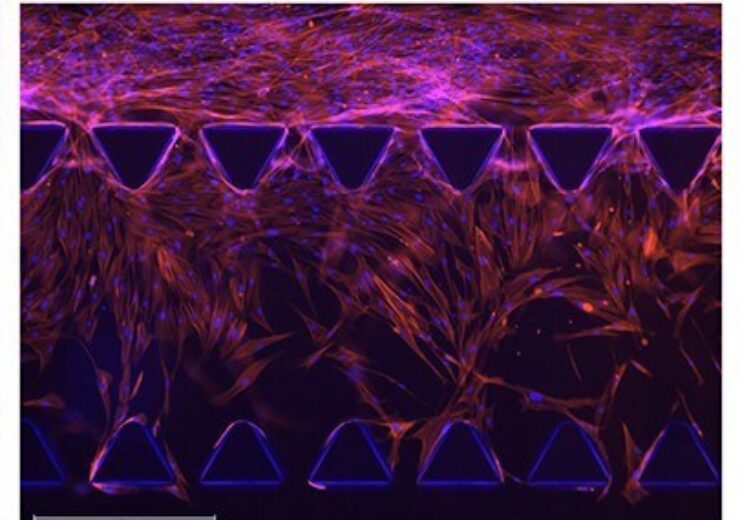Collink.3D 90 offers additional functionality to address wide range of 3D bioprinting applications, including soft and hard tissues, and shows faster human cell migration into gel matrices compared with a commercial hydrogel

Collink.3D 90 demonstrates faster human cell migration. (Credit: PRNewsfoto/CollPlant)
Israeli regenerative and aesthetic medicine company CollPlant has rolled out Collink.3D 90, a recombinant human collagen (rhCollagen)-based bioink for use in different 3D bioprinting applications.
According to the company, cell migration plays important role in physiological processes such as tissue repair and regeneration.
Collink.3D 90 is designed to enable faster human cell migration into gel matrices compared to commercial hydrogel that is widely used for 2D and 3D cell culture.
It is complementary to Collink.3D 50, the company’s initial commercial bioink that provides enhanced functionality to addresses additional printing needs of soft and hard tissues.
The initial results indicate Collink.3D 90 has the potential to perform as a superior, animal free, human cell culture substrate, said CollPlant.
CollPlant CEO Yehiel Tal said: “We are very excited to continue to broaden our rhCollagen-based bioink offerings, providing our biopharma and academic customers the ability to print a variety of applications.
“We believe our bioinks deliver a favorable alternative to existing commercial bioinks owing to their high bio-functionality, rheological properties (e.g., controlled viscosity) and high purity.
“In addition to our product pipeline, bioinks are an important and strategic platform that supports CollPlant’s efforts to pursue licensing and collaboration agreements with business partners, and we will continue to introduce new bioinks and innovate in this area.”
Bioinks are applied to variety of soft and hard tissue engineering applications, to address specific mechanical requirements for different physiological needs.
The most suitable bioink for a given application would imitate the physical properties of the target tissue or organ, while facilitating high cell survival.
CollPlant claims that its Collink.3D enables the high-resolution, scalable, and reproduceable 3D bioprinting of scaffolds that precisely mimic the human tissues and organs.
It can be used in 3D cell culturing, tissue modelling for drug discovery and development, along with engineering tissues and implantation of organs in regenerative medicine.
Also, the product is compatible with most of the 3D bioprinting technologies and cell types including stem cells, induced pluripotent stem cells, endothelial, and epithelial cells.
Last year, CollPlant has signed a collaboration agreement with Allergan, an AbbVie company, for development and marketing of dermal and soft tissue fillers.
